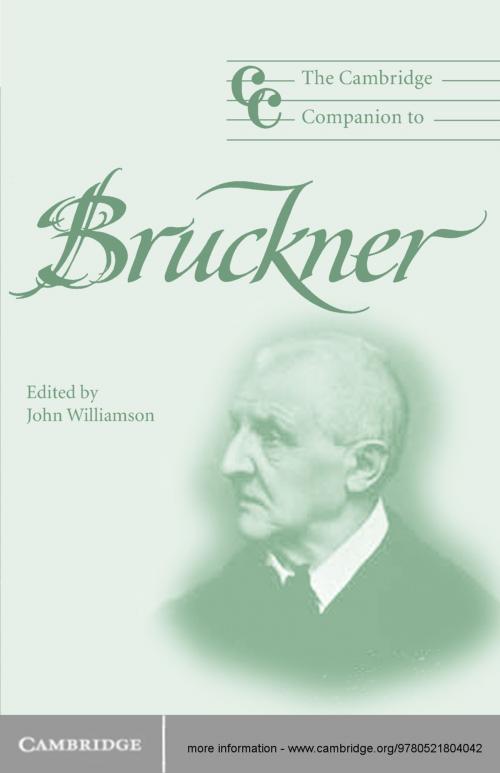| Author: | ISBN: | 9781139816571 | |
| Publisher: | Cambridge University Press | Publication: | July 15, 2004 |
| Imprint: | Cambridge University Press | Language: | English |
| Author: | |
| ISBN: | 9781139816571 |
| Publisher: | Cambridge University Press |
| Publication: | July 15, 2004 |
| Imprint: | Cambridge University Press |
| Language: | English |
This Companion provides an overview of the composer Anton Bruckner (1824–1896). Sixteen chapters by leading scholars investigate aspects of his life and works and consider the manner in which critical appreciation has changed in the twentieth century. The first section deals with Bruckner's Austrian background, investigating the historical circumstances in which he worked, his upbringing in Upper Austria, and his career in Vienna. A number of misunderstandings are dealt with in the light of recent research. The remainder of the book covers Bruckner's career as church musician and symphonist, with a chapter on the neglected secular vocal music. Religious, aesthetic, formal, harmonic, and instrumental aspects are considered, while one chapter confronts the problem of the editions of the symphonies. Two concluding chapters discuss the symphonies in performance, and the history of Bruckner-reception with particular reference to German Nationalism, the Third Reich and the appropriation of Bruckner by the Nazis.
This Companion provides an overview of the composer Anton Bruckner (1824–1896). Sixteen chapters by leading scholars investigate aspects of his life and works and consider the manner in which critical appreciation has changed in the twentieth century. The first section deals with Bruckner's Austrian background, investigating the historical circumstances in which he worked, his upbringing in Upper Austria, and his career in Vienna. A number of misunderstandings are dealt with in the light of recent research. The remainder of the book covers Bruckner's career as church musician and symphonist, with a chapter on the neglected secular vocal music. Religious, aesthetic, formal, harmonic, and instrumental aspects are considered, while one chapter confronts the problem of the editions of the symphonies. Two concluding chapters discuss the symphonies in performance, and the history of Bruckner-reception with particular reference to German Nationalism, the Third Reich and the appropriation of Bruckner by the Nazis.















